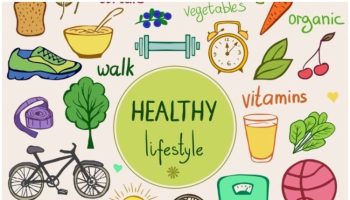Weight loss is often viewed as a desirable goal, but the methods used to achieve it can significantly impact overall health. One common, yet risky approach is losing weight without consuming enough food. While reducing caloric intake can lead to weight loss, failing to eat adequately can have serious health implications. Understanding the risks associated with inadequate food intake during weight loss is crucial for making informed and healthy choices. We will explore why losing weight without eating enough food can be dangerous and provide guidance on how to approach weight loss safely.

The pursuit of weight loss can sometimes lead individuals to adopt extreme dietary measures, including severely restricting food intake. While this approach may result in initial weight loss, it often comes with a host of health risks. Insufficient food intake can lead to nutrient deficiencies, metabolic slowdown, and various other health complications. It is important to recognize that sustainable weight loss should involve balanced nutrition and gradual changes rather than extreme caloric restriction. By understanding the potential dangers of not eating enough while trying to lose weight, you can make healthier choices that promote long-term well-being.
The Risks of Not Eating Enough Food

1. Nutrient Deficiencies
Importance of Balanced Nutrition
When you drastically reduce your food intake, you risk not getting the essential nutrients your body needs to function optimally. Nutrients such as vitamins, minerals, and proteins are crucial for various bodily processes, including immune function, energy production, and tissue repair.
Consequences of Nutrient Deficiencies
Nutrient deficiencies can lead to a range of health issues, including weakened immune function, fatigue, and impaired cognitive abilities. For example, insufficient iron can cause anemia, while a lack of calcium and vitamin D can lead to weakened bones. Ensuring a balanced diet is vital to prevent these deficiencies and maintain overall health.
2. Slowed Metabolism
How Metabolism Works
Your metabolism is responsible for converting the food you eat into energy. When you significantly reduce your caloric intake, your body can enter a state of “starvation mode,” where it slows down metabolism to conserve energy. This metabolic slowdown can hinder weight loss efforts and negatively impact overall health.
Impact on Weight Loss
A slower metabolism means fewer calories are burned throughout the day, which can make it more difficult to lose weight and maintain weight loss. Additionally, a reduced metabolic rate can lead to the loss of lean muscle mass, further complicating weight management and affecting body composition.
3. Loss of Muscle Mass
Role of Muscle Mass in Weight Loss
Muscle mass plays a crucial role in maintaining a healthy metabolism and supporting physical activity. When you do not eat enough food, your body may start to break down muscle tissue for energy, leading to a loss of muscle mass.
Effects on Physical Health
Loss of muscle mass can weaken your physical strength, reduce endurance, and impact overall functionality. Maintaining an adequate intake of protein and other essential nutrients is important for preserving muscle mass and supporting a healthy metabolism during weight loss.
4. Increased Risk of Health Complications

Short-Term Health Risks
Inadequate food intake can lead to immediate health issues such as dizziness, fainting, and irritability. These symptoms are often indicative of a lack of essential nutrients and energy required for daily functioning.
Long-Term Health Risks
Over time, chronic under-eating can contribute to more severe health complications, including heart problems, digestive issues, and hormonal imbalances. For example, women who eat too little may experience irregular menstrual cycles or amenorrhea (absence of menstruation), which can affect reproductive health.
Safe Approaches to Weight Loss
1. Focus on Nutrient-Dense Foods
What Are Nutrient-Dense Foods?
Nutrient-dense foods are those that provide a high amount of essential nutrients relative to their calorie content. Examples include fruits, vegetables, lean proteins, whole grains, and healthy fats. These foods can help you meet your nutritional needs while supporting weight loss.
Benefits of Nutrient-Dense Eating
Eating nutrient-dense foods ensures you get the vitamins, minerals, and other nutrients necessary for good health without consuming excess calories. This approach supports sustainable weight loss and promotes overall well-being.
2. Gradual Weight Loss
Importance of Gradual Changes
Gradual weight loss involves making slow and steady changes to your diet and exercise routine. This approach allows your body to adjust to new habits and helps prevent the negative effects associated with extreme caloric restriction.
Recommended Weight Loss Rate
Aiming for a weight loss rate of 1-2 pounds per week is generally considered safe and sustainable. This gradual approach minimizes the risk of nutrient deficiencies and other health complications while promoting long-term success.
3. Incorporate Regular Physical Activity
Benefits of Exercise
Regular physical activity supports weight loss by increasing energy expenditure and helping maintain muscle mass. It also contributes to overall health and well-being by improving cardiovascular fitness, enhancing mood, and reducing stress.
Exercise Recommendations
Engaging in a combination of aerobic exercises (such as walking, jogging, or cycling) and strength training (such as lifting weights or doing resistance exercises) can provide comprehensive benefits. Aim for at least 150 minutes of moderate-intensity aerobic activity or 75 minutes of vigorous-intensity activity per week, along with muscle-strengthening exercises on two or more days per week.
4. Seek Professional Guidance

Importance of Professional Support
Consulting with a healthcare provider or registered dietitian can provide personalized guidance and support for your weight loss journey. These professionals can help you develop a balanced eating plan, address any nutritional concerns, and monitor your progress.
Benefits of Professional Advice
Professional guidance ensures that your weight loss efforts are safe and effective. It also helps address any underlying health conditions and provides strategies for overcoming challenges related to weight management.
Final Thoughts
Losing weight without eating enough food poses significant risks to your health and well-being. Nutrient deficiencies, slowed metabolism, loss of muscle mass, and increased risk of health complications are all potential consequences of inadequate food intake. To achieve weight loss safely, it is essential to focus on nutrient-dense foods, adopt a gradual approach, incorporate regular physical activity, and seek professional guidance when needed.
By prioritizing balanced nutrition and making informed choices, you can support sustainable weight loss and enhance your overall health. Remember that the goal of weight loss should be to improve your health and well-being, not just to achieve a specific number on the scale. Approach your weight loss journey with care and consideration, and enjoy the benefits of a healthier, more active lifestyle.







